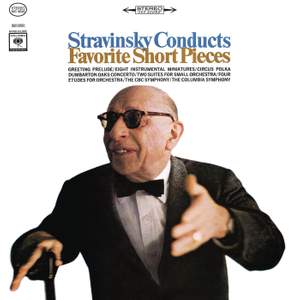Surprised to find the DG "Stravinsky Complete Edition" appears to have been removed from the catalogue. Thought the claim to completeness was spurious (where, for instance, were his late orchestrations of Four Bach Preludes and Fugues) it was a very impressive survey. Let's hope it returns, preferably expanded to something closer to its claim.




Comment